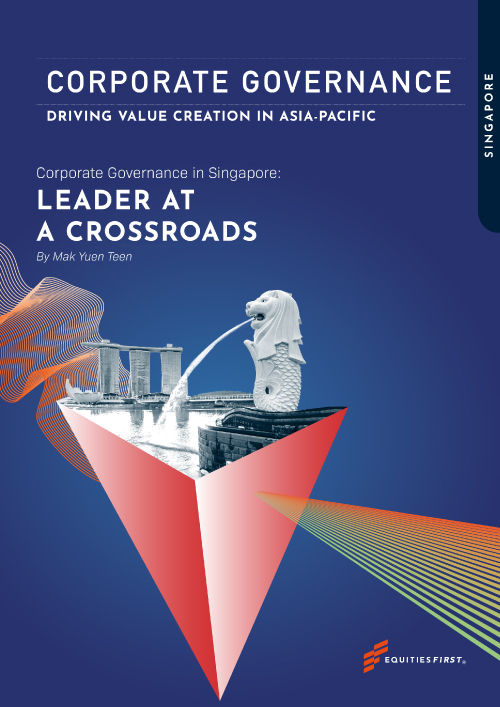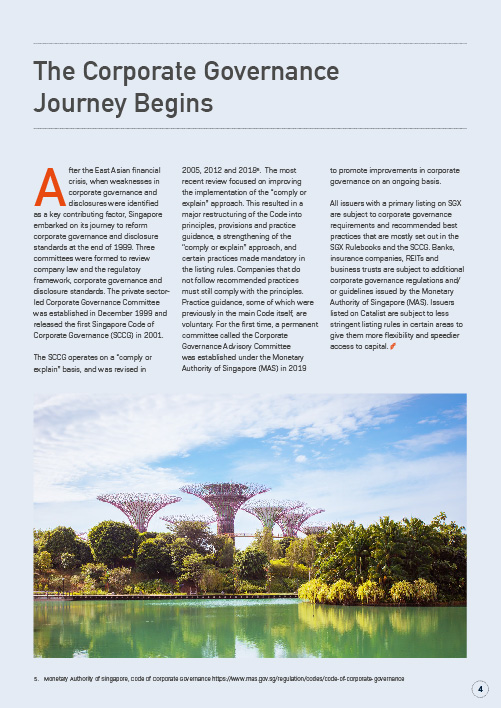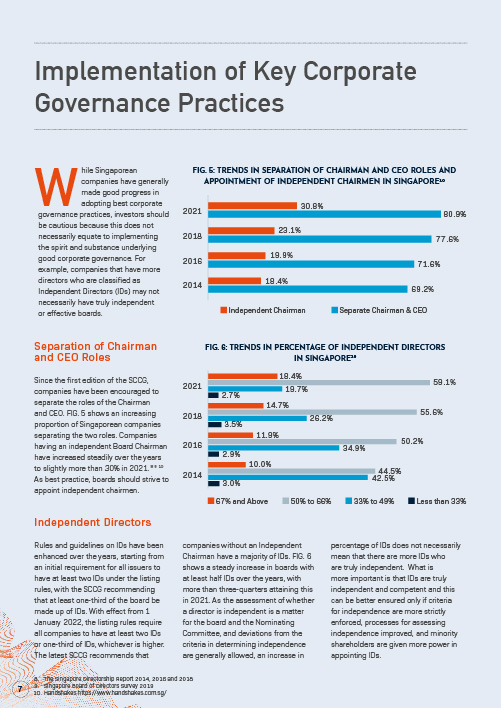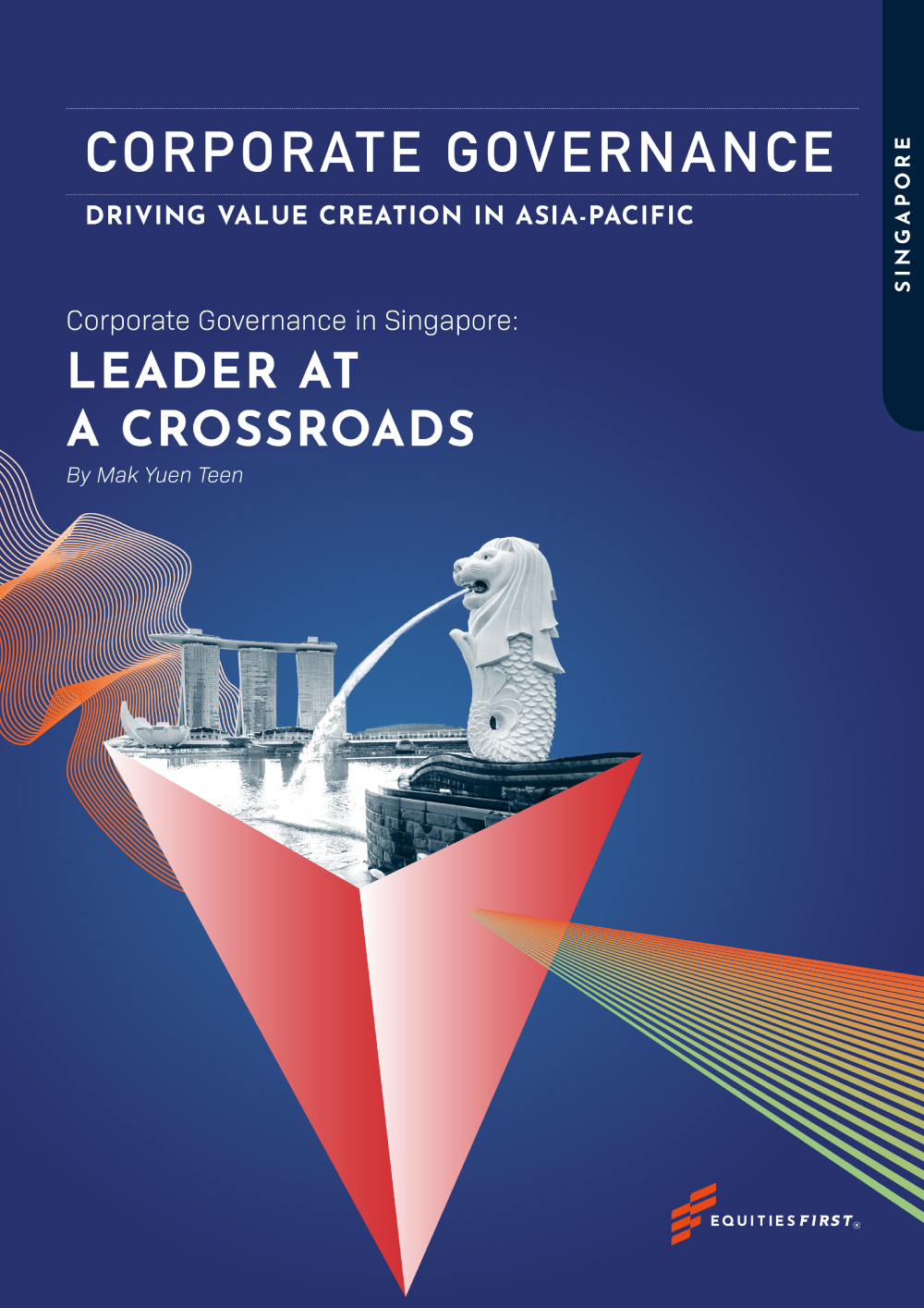EquitiesFirst has joined forces with Nasdaq Governance Solutions to publish a series of research reports on corporate governance for selected markets in APAC. We have assembled a team of experts on corporate governance in each of the subject markets to provide background and key insights on the space. These reports are for both investors in and management of listed companies focused on creating long-term value in their enterprises.
The topic areas will range from governance best practices, technological shifts, regulatory trends, communication, investor expectations and other topics tailored specifically to each of the regions.
While Singapore remains the regional leader in corporate governance standards, shifting priorities, complacency and ambitious neighbors are challenging the status quo. Our latest report takes a comprehensive look at these changing dynamics.
There have been significant reforms in corporate governance of listed issuers in Singapore over the past 20 years. However, as delistings increased and new listings declined, some changes have been wound back and listing rules relaxed. Singapore continues to be rated as one of the best in Asia for corporate governance standards and practices, but it is now at a crossroads as momentum slows and other Asian markets begin closing the gap.
Further, realization of the full benefits of good corporate governance remains elusive for many companies as a “box-ticking” mindset is still prevalent.
Some key takeaways from the report are:
- Singapore’s position as regional leader in corporate governance standards is under threat
- Complacency and an impetus to attract more listings is undermining this legacy
- New, ambitious challengers in the region are beginning to close the gap, with some outperforming Singapore in certain areas
- Singapore corporate boards must do more to improve board effectiveness
- Regulators and domestic investors must continue to hold boards accountable and push for higher standards
- There are optimistic trends in gender diversity and ESG reporting



Further, realization of the full benefits of good corporate governance remains elusive for many companies as a “box-ticking” mindset is still prevalent.
Some key takeaways from the report are:
- Singapore’s position as regional leader in corporate governance standards is under threat
- Complacency and an impetus to attract more listings is undermining this legacy
- New, ambitious challengers in the region are beginning to close the gap, with some outperforming Singapore in certain areas
- Singapore corporate boards must do more to improve board effectiveness
- Regulators and domestic investors must continue to hold boards accountable and push for higher standards
- There are optimistic trends in gender diversity and ESG reporting



“Corporate Governance in Singapore: Leader at a Crossroads” was written by Professor Mak Yuen Teen and co-published by Nasdaq and EquitiesFirst. It is the sixth in the series Corporate Governance: Driving Value Creation in Asia Pacific.
Mak Yuen Teen is Professor (Practice) of Accounting at the NUS Business School and a former Vice Dean of the School. He holds First Class Honours, Masters and PhD degrees in accounting and finance, and is a fellow of CPA Australia. Professor Mak founded the first corporate governance center in Singapore in 2003 at the NUS Business School and was a member of the Governing Council of the Singapore Institute of Directors.




